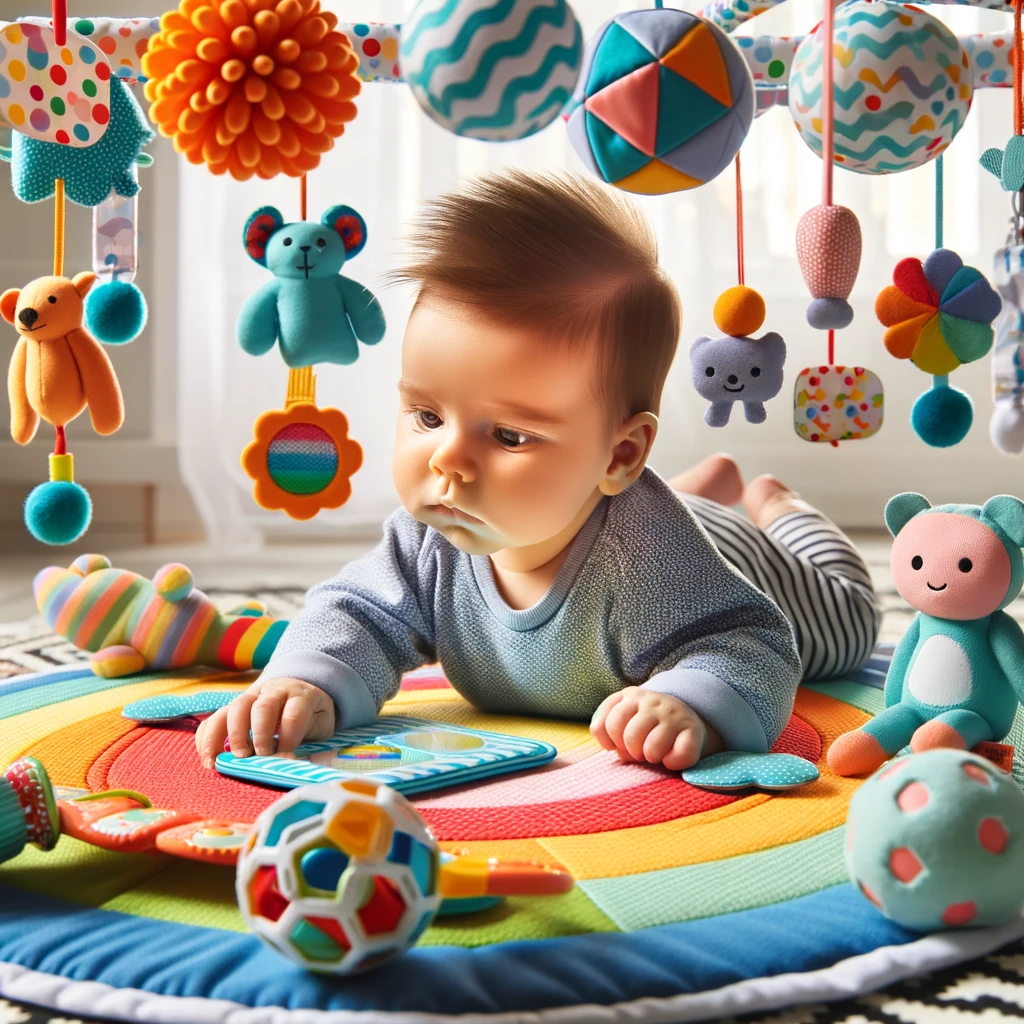Newborn Basics: You Need to Know About Caring for Your New Arrival
Welcoming a new baby into your family is a moment filled with joy, excitement, and, admittedly, a bit of anxiety. For new parents, understanding the basics of newborn care can help ease the transition into parenthood. This blog post covers essential tips and fundamental knowledge to help you feel more prepared as you embark on this incredible journey.
Feeding Your Newborn: Feeding is one of the first and most crucial aspects of newborn care. Whether you choose breastfeeding, formula feeding, or a combination of both, here are some key points:

- Breastfeeding: It’s recommended to start breastfeeding as soon as possible after birth. Remember, it’s natural for both you and your baby to need practice and patience to get it right.
- Formula Feeding: If you opt for formula, ensure that you follow the mixing instructions carefully and choose an iron-fortified formula unless advised otherwise by your pediatrician.
- Feeding Schedule: Newborns need to eat every 2-3 hours. Watch for signs of hunger, such as fussiness and sucking motions.
Newborn Sleep Patterns: Understanding newborn sleep patterns will help you establish a more manageable routine.
- Sleep Duration: Newborns typically sleep about 16 hours a day, usually in 3- to 4-hour intervals.
- Safe Sleeping Practices: Always place your baby on their back to sleep and ensure the crib is free from blankets, pillows, and toys to reduce the risk of SIDS (Sudden Infant Death Syndrome).
Diapering: Diapering is a task you’ll become very familiar with as most newborns go through 10 to 12 diapers a day.
- Types of Diapers: You can choose between disposable and cloth diapers. Each has its advantages and considerations in terms of convenience and environmental impact.
- Changing Tips: Always have your supplies within reach, and never leave your baby unattended on the changing table.
Bathing and Hygiene: Bathing a newborn is not only about cleanliness but also a bonding experience.
- Bathing Frequency: It’s usually enough to bathe your baby 2-3 times a week in the beginning. Sponge baths are recommended until the umbilical cord falls off and the navel heals completely.
- Bath Time Safety: Gather all supplies beforehand, and never leave your baby unattended in the bath.
Health and Safety: Keeping your newborn healthy and safe is paramount.
- Doctor Visits: Schedule regular check-ups to monitor your baby’s growth and development.
- Vaccinations: Keep track of and follow the recommended vaccination schedule.
- Home Safety: Babyproof your home, securing cabinets and drawers and ensuring smoke and carbon monoxide detectors are working properly.
Emotional and Physical Recovery for Mothers: Postpartum care is crucial for mothers to recover both emotionally and physically after giving birth.
- Physical Recovery: Discuss common physical changes and challenges post-birth, such as healing after delivery and managing sleep deprivation.
- Emotional Well-being: Highlight the importance of mental health, addressing topics like postpartum depression and where to seek support.
Bonding with Your Newborn: Bonding is an essential part of the emotional health for both the baby and the parents.
- Skin-to-Skin Contact: Explain the benefits of skin-to-skin contact immediately after birth and during the early weeks.
- Reading and Talking: Encourage parents to talk and read to their newborns to foster attachment and early language development.
Nutrition for Newborns: Going beyond just feeding methods, discussing nutritional needs can be helpful.
- Breast Milk Benefits: Elaborate on the specific benefits of breast milk, including immunity and nutritional composition.
- Supplementing: When and how to introduce supplements, like vitamin D for breastfed babies.
Handling Common Newborn Issues: Addressing common concerns can reassure new parents.

- Colic: Strategies for managing colic, including soothing techniques and when to seek medical advice.
- Diaper Rash: Prevention and treatment methods for diaper rash to keep the baby comfortable.
- Signs of Illness: What symptoms should prompt a call or visit to the pediatrician.
Resources and Support: Recommendations for finding support and information can empower new parents.
- Parenting Classes: Encourage taking newborn care classes, which can be found at hospitals, clinics, or community centers.
- Online Resources: Provide a list of reputable websites and online forums where parents can find support and ask questions.
- Local Parenting Groups: The benefits of connecting with local parenting groups for shared experiences and tips.
Creating a Stimulating Environment for Growth: Engaging a newborn’s senses is key to their cognitive and emotional development.

- Visual Stimulation: Use mobiles, and colorful and contrasting patterns around the nursery to stimulate sight.
- Auditory Stimulation: Soft music, gentle singing, and soothing sounds can stimulate hearing and calm the baby.
- Tactile Stimulation: Various textures for the baby to touch and explore can promote tactile development.
Practical Tips for Managing Day-to-Day Life: Practical advice can help new parents organize their lives around their new baby more effectively.
- Routine Establishment: While strict schedules aren’t feasible with a newborn, establishing a flexible routine can benefit both the baby and the parents.
- Time Management: Tips on balancing time between baby care, personal time, and if applicable, professional obligations.
- Household Management: Strategies for meal preparation, shopping, and maintaining the home efficiently with a newborn.
Traveling with a Newborn: Traveling can be daunting, but with the right preparation, it can be managed smoothly.
- Car Travel: Safety tips for car seats and managing longer trips with frequent stops.
- Air Travel: Guidance on navigating airports and flights with a newborn, including regulations regarding carry-ons and baby gear.
- Essential Gear: A checklist of essentials to pack when traveling to ensure you have everything your baby needs.
Celebrating Milestones: Encouraging parents to recognize and celebrate the key development milestones in the early months.

- Physical Milestones: Smiling, head control, and eventually sitting up and crawling.
- Social and Emotional Milestones: Responding to familiar faces, babbling, and interactive play.
- Recording Milestones: Keeping a baby book or digital record of these milestones as precious memories and for sharing with pediatricians.
Reaffirm the joy and challenge of the newborn stage, reminding parents to take care of themselves and seek help when needed. Encourage them to trust their instincts and enjoy the journey of parenthood. Caring for a newborn is both challenging and rewarding. While it may feel daunting at times, remember that every parent is learning as they go. Don’t hesitate to ask for help from friends, family, or your pediatrician. With time, you’ll gain confidence and develop a deeper bond with your new baby. Enjoy every moment of your new adventure in parenthood!


